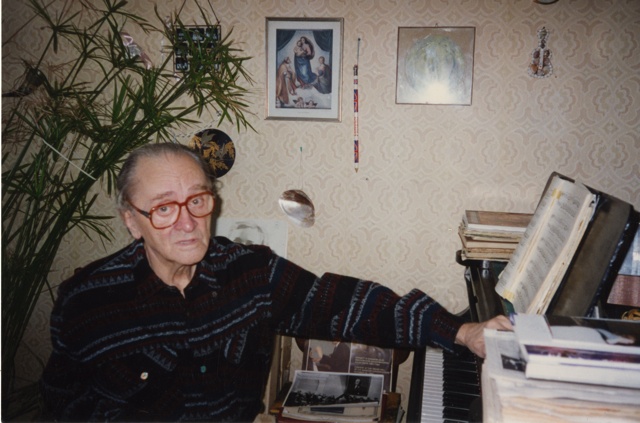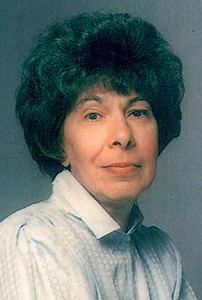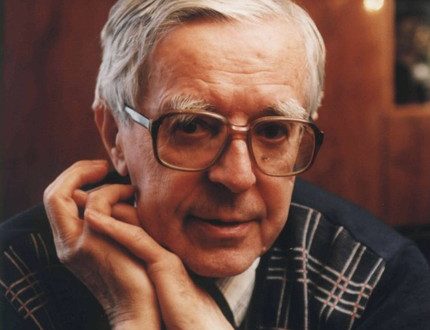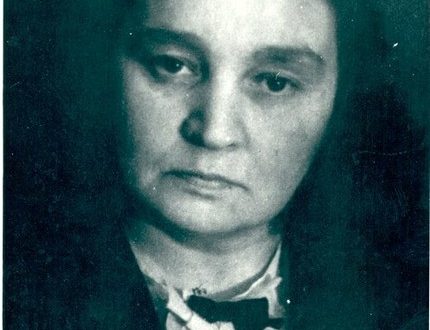
Oleg Dragomirovich Boshniakovich (Oleg Bochniakovitch) |
Oleg Bochniakovitch
“The artistic originality of Oleg Boshnyakovich becomes more and more attractive over the years, and instructive for young musicians. The pithiness of interpretations, the depth of penetration into the lyrical sphere of music of various styles, the beauty of the sound of slow, “frozen” movements, the grace and subtlety of pedalization, the improvisation and originality of artistic expression – these features of the pianist’s performing style attract not only professionals, but also a wide range of music lovers. People are grateful to the pianist for his sincere and devoted service to music.” Thus ended the review of the Chopin evening of the artist, given by him in 1986.
… At the end of 1958, a new philharmonic auditorium appeared in Moscow – the Concert Hall of the Gnessin Institute. And it is characteristic that Oleg Boshnyakovich was one of the first to speak here: after all, since 1953 he has been teaching at the Gnessin Institute (since 1979, an assistant professor), and besides, such modest-sized rooms are the best fit for the chamber warehouse of this artist’s talent. However, this evening, to a certain extent, can be considered the beginning of the musician’s concert activity. Meanwhile, a considerable period has passed since graduation: in 1949, he, a student of K. N. Igumnov, graduated from the Moscow Conservatory, and by 1953 he completed a postgraduate course at the Gnessin Institute under the direction of G. G. Neuhaus. “Oleg Boshnyakovich,” V. Delson wrote back in 1963, “is a pianist in all his make-up and spirit very close to Igumnov’s traditions (despite the well-known influence of the school of G. Neuhaus). He belongs to those artists about whom one always wants to say with a particularly respectful touch: a real musician.” Illness, however, pushed back the date of her artistic debut. Nevertheless, Boshnyakovich’s first open evening did not go unnoticed, and since 1962 he has regularly given solo concerts in Moscow.
Boshnyakovich is one of the few modern concert players who have made their way to the big stage without taking competitive barriers. This has its own logic. In terms of repertoire, the pianist is inclined towards the lyrical sphere (the poetic pages of Mozart, Schubert, Schumann, Liszt, Chopin, Tchaikovsky form the basis of his programs); he is not attracted by flashy virtuosity, unbridled emotional outbursts.
So, what still attracts listeners to Boshnyakovich? “Apparently, first of all,” G. Tsypin answers in Musical Life, “that he does not give concerts as much as plays music on stage. His artistic destiny is an outwardly unpretentious, ingenuous conversation with the listener; the conversation is somewhat shy and candid at the same time. In our time … performing properties of this kind are not too frequent; they are more associated with the past of interpretive art than with the present, resurrecting in the memory of such artists as, say, Boshnyakovich’s teacher, K. N. Igumnov. There are music lovers for whom these properties, this stage style, are still preferable to everything else. Hence the confluence of people to Boshniakovich’s clavirabends. Yes, such features as simplicity and sincerity of expression, nobility of taste, improvisational expression, have created, if not a particularly wide, but rather strong circle of connoisseurs of Oleg Boshnyakovich’s art.
Grigoriev L., Platek Ya., 1990





